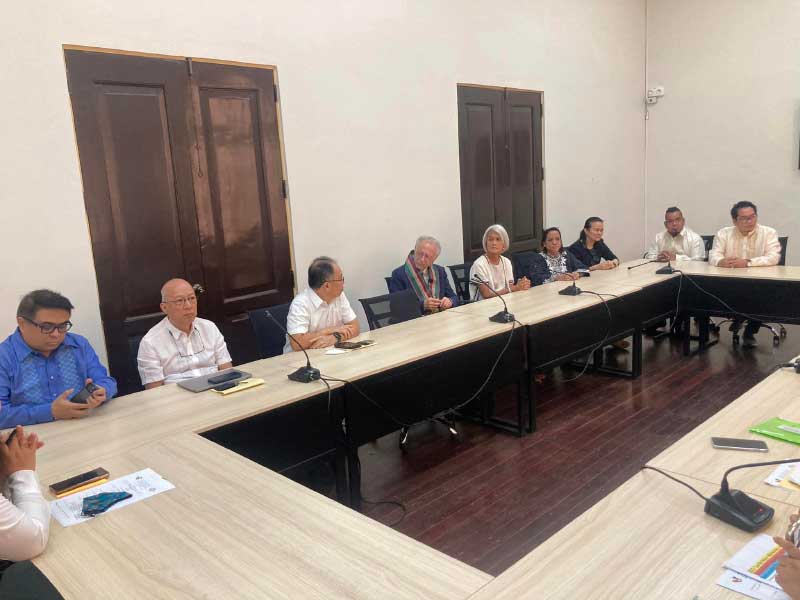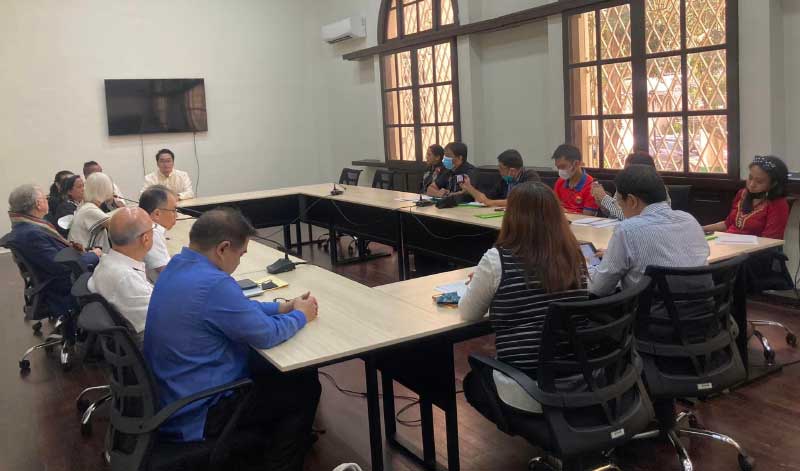By Joseph B.A. Marzan
Several members of the academe and advocates of indigenous languages in the Philippines on Tuesday expressed opposition to the current proposal in Congress to suspend Mother Tongue-Based Multilingual Education (MTB-MLE) in basic education schools, saying that it would not benefit the education system at all.
Philippine Institute for Development Studies (PIDS) President Aniceto Orbeta Jr. lamented the current implementation of MTB-MLE instruction in schools to push for its suspension.
“These problems are being used to suspend the [MTB-MLE] program. It’s as if some good thing, because we cannot do it, we stop it, rather than face the problems squarely, and address them, that’s what we are asking. We have to recognize the problem, it’s very difficult,” Orbeta said.
“I think suspension will stop all efforts at addressing the problems, because if teachers are no longer allowed to use their mother tongue in teaching, then you put the problems under the rug. We see the problems because we have tried to implement it. Suspend it, and you’ll not recognize it,” he added.
Dr. Gregorio E.H. Del Pilar, immediate past president of the National Research Council of the Philippines, noted the 10th anniversary of Republic Act No. 10533 (Enhanced Basic Education Act of 2013), which mandated the use of MTB-MLE in basic education instruction.
Del Pilar said that continuous assessment coupled with research, and not suspension, would be the ultimate solution to remedy the current issues on MTB-MLE implementation.
“We hope to be able to help in conducting research to find out how we can improve the implementation. Any huge undertaking like this will have problems, but we believe that the solution is to remedy those problems. We hope to be involved in the research that will go into these problems,” said Del Pilar.
Sign language linguist Dr. Liza Martinez, a convenor of the Filipino Sign Language (FSL) Network, said that despite the exclusion of FSL in the proposed suspension bill, they would rather stand in solidarity with other languages, emphasizing on the inclusive nature of FSL.
“We have categorically stated that we are in full solidarity with all of the 100 plus [native languages]. We suspect the exception of FSL has something to do with disability, but we are bringing into a conversation a perspective of equality based on language,” said Martinez.
“It has taken 10 years, the [Department of Education] has not recognized FSL as a mother language. There is no learning material on FSL, but we are hoping to make progress now,” she added.
Prof. Fernand de Varennes, United Nations (UN) Special Rapporteur on Minority Issues, did not comment directly on the proposed policy, but said that highlighting the significance of teaching using MTB-MLE is important.
He stated that studies across the globe have indicated better performance of children who are taught in their mother language.
“There are always challenges [to teaching using MTB-MLE], but it is always best for children. What is best for children to get quality education, is as much as possible, education in their own language, so that they have the skills to learn better, for them to become more fluent in English, in Filipino, and in other languages,” said de Varennes.
UN Educational, Scientific and Cultural Organization (UNESCO) Philippine Commission Secretary General Ivan Anthony Henares mentioned that only three countries have made their national action plan for MTB instruction.
The Philippines, Henares said, was still in the stage of selecting members of its steering committee that will craft the country’s plan.
These statements were made on the sidelines of the launch of the 2023 Conference-Workshop on Indigenous Languages and the Sustainable Development Goals held at the University of the Philippines Visayas in Iloilo City, with 400 participants from across the country.
Philippine Federation for the Deaf (PFD) President Carolyn Dagani said that while Filipino Sign Language has been included as a “mother tongue” in the K-12 curriculum under R.A. No. 10533, they would like to see it being given proper recognition.
The kick-off coincides with International Mother Language Day and the start of the International Decade of Indigenous Languages.
The aim of the event is to create awareness of the country’s position in terms of appreciation of indigenous languages, cultures, and traditions, and highlight challenges in using MTB-MLE.
House Bill No. 6717, which suspends the use of MTB-MLE from Kindergarten to Grade 3 levels in elementary schools, was passed by the House of Representatives last February 6.
As of this writing, it remains pending with the Senate Committee on Basic Education, chaired by Senator Sherwin Gatchalian.




















